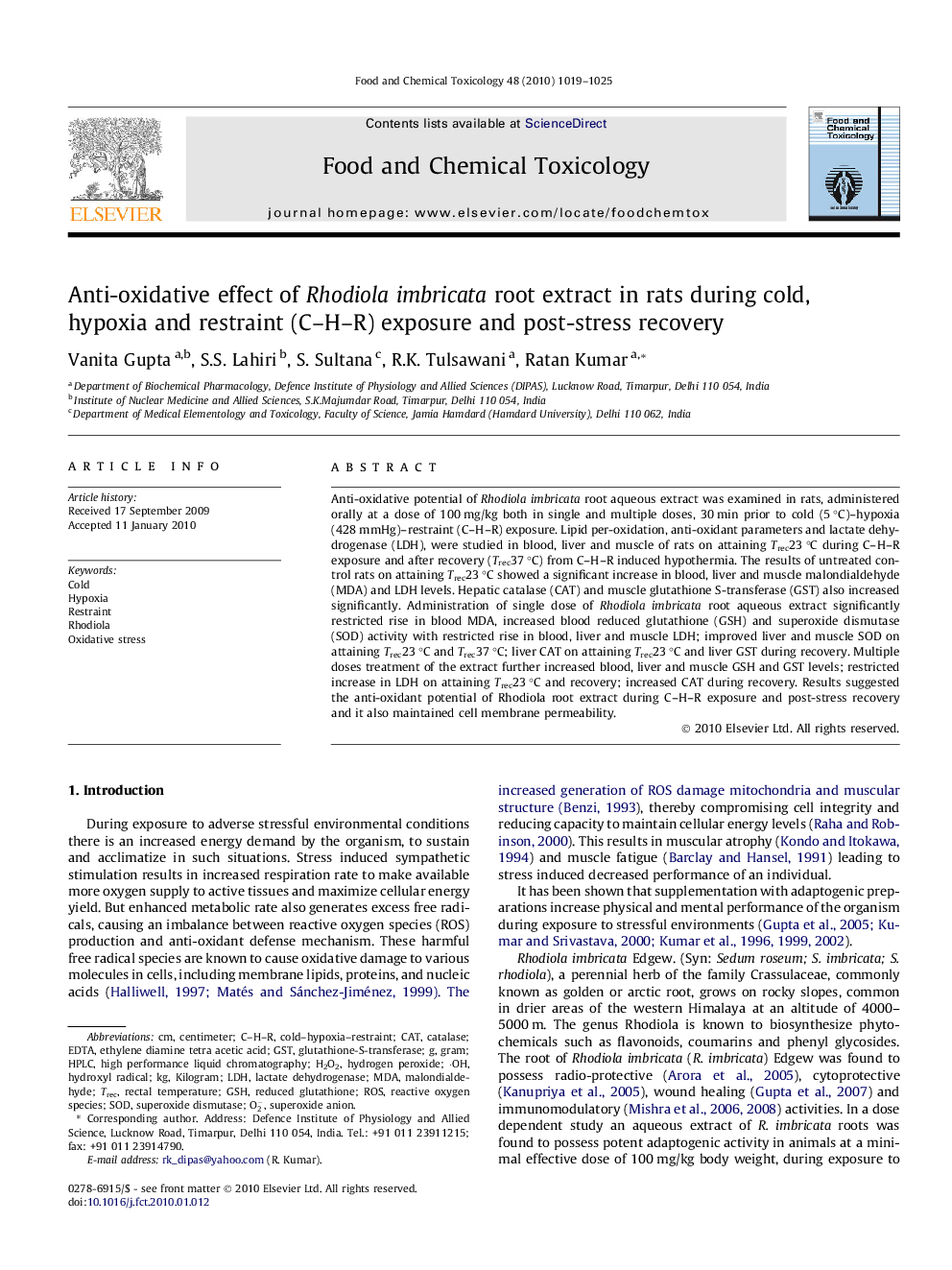| Article ID | Journal | Published Year | Pages | File Type |
|---|---|---|---|---|
| 2586009 | Food and Chemical Toxicology | 2010 | 7 Pages |
Anti-oxidative potential of Rhodiola imbricata root aqueous extract was examined in rats, administered orally at a dose of 100 mg/kg both in single and multiple doses, 30 min prior to cold (5 °C)–hypoxia (428 mmHg)–restraint (C–H–R) exposure. Lipid per-oxidation, anti-oxidant parameters and lactate dehydrogenase (LDH), were studied in blood, liver and muscle of rats on attaining Trec23 °C during C–H–R exposure and after recovery (Trec37 °C) from C–H–R induced hypothermia. The results of untreated control rats on attaining Trec23 °C showed a significant increase in blood, liver and muscle malondialdehyde (MDA) and LDH levels. Hepatic catalase (CAT) and muscle glutathione S-transferase (GST) also increased significantly. Administration of single dose of Rhodiola imbricata root aqueous extract significantly restricted rise in blood MDA, increased blood reduced glutathione (GSH) and superoxide dismutase (SOD) activity with restricted rise in blood, liver and muscle LDH; improved liver and muscle SOD on attaining Trec23 °C and Trec37 °C; liver CAT on attaining Trec23 °C and liver GST during recovery. Multiple doses treatment of the extract further increased blood, liver and muscle GSH and GST levels; restricted increase in LDH on attaining Trec23 °C and recovery; increased CAT during recovery. Results suggested the anti-oxidant potential of Rhodiola root extract during C–H–R exposure and post-stress recovery and it also maintained cell membrane permeability.
